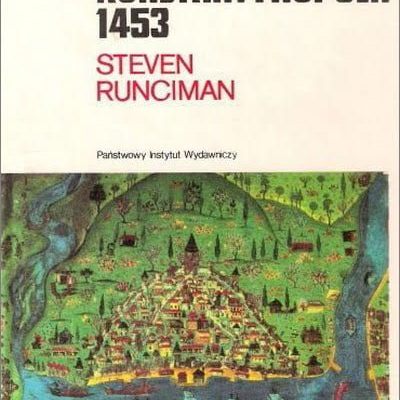In his book entitled “The Fall of Constantinople 1453” by the eminent British medievalist Steven Runciman presented the circumstances, course and consequences of the fall of the city of Constantine the Great, previously known as Byzantium. A very strong point of this book is the fact that Mr. Steven Runciman was able to write objectively about the complicated relations between East and West.
Books by this author, which deal with medieval history, are reading in which the point of view of each side of the conflict is presented in detail and objectively, which makes it easier for the reader to form his own judgment about the described events. I like reading books about the past, where the story is told to the reader. The aforementioned English historian and polyglot was a master of narrative style.
As rarely in history in 1453 of the Christian era, the fate of the Byzantine capital was sealed, of which there is no doubt, the Byzantine-loving author. Arguments in the form of a short-sighted policy, and uncooperative European states that thought only about their own profits, which Mr. Runciman gives as one of the main reasons for Turkish success in Europe in the late Middle Ages, are fully justified.


